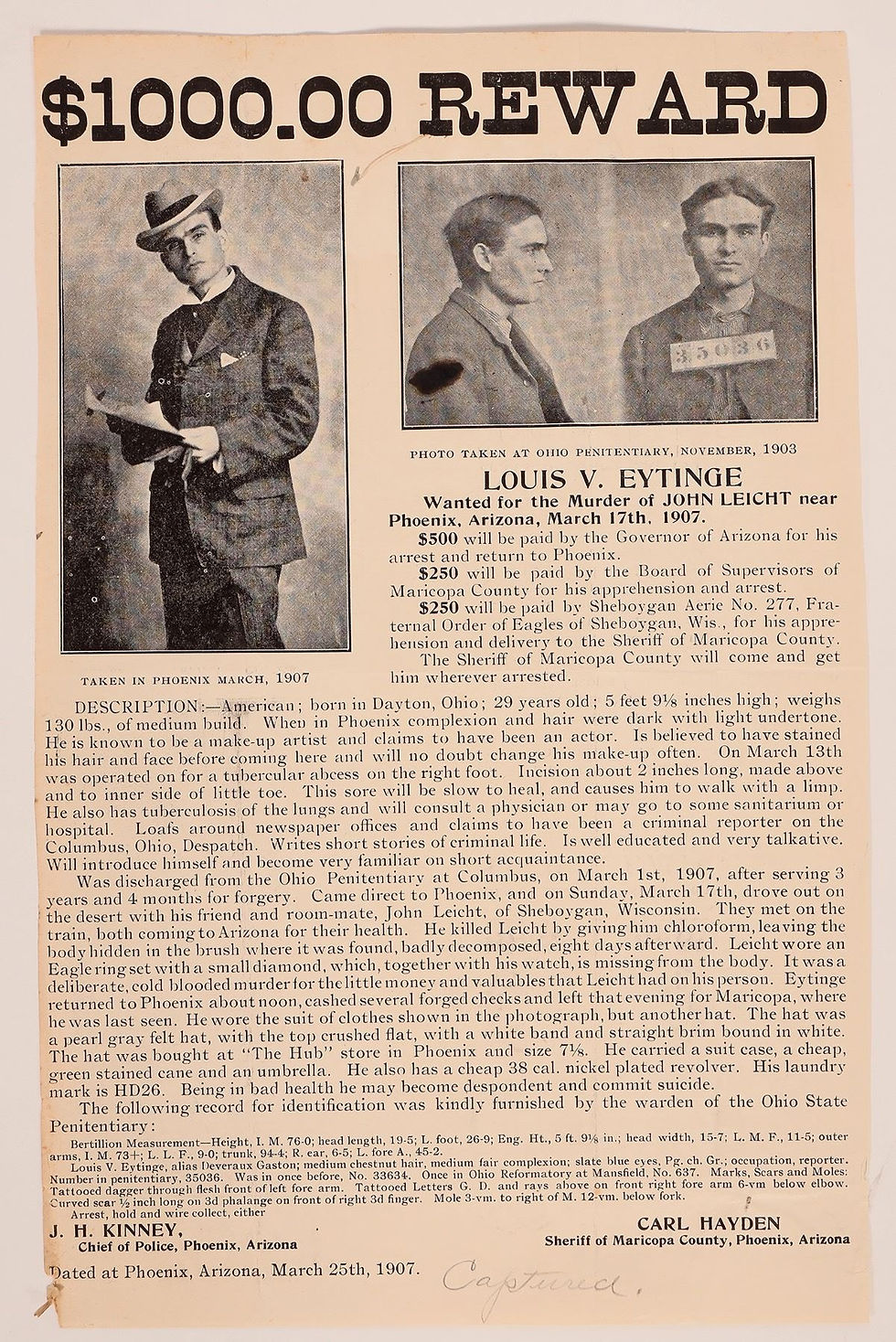Reinvigorating the Mythology of the Old West
- David Grassé
- Sep 21, 2020
- 4 min read
"What may transpire in this stagnant posture?
Tradition multiplies where repetition reigns
And the air smells of age..." - Faith and The Muse from "Mercyground" Recently, I had a brief discussion online with John Boessenecker, the author of Bandido : The Life and Times of Tiburcio Vasquez and When Law Was in the Holster : The Frontier Life of Bob Paul (and whom I respect as an author and historian) about the legendary confrontation between Ms. Jovita Idár, the journalist for El Progreso newspaper, and The Texas Rangers. The story goes Ms. Idár published an editorial in El Progreso criticising President Woodrow Wilson's order to dispatch U.S military troops to the Mexico–United States border. In doing so, Ms. Idár had offended the U.S Army and Texas Rangers. The Rangers retaliated, and attempted to close El Progreso, but Idár blocked the entrance to the newspaper's office. The Rangers backed down, and rode away. However, the officers came back another day, when Ms. Idár was not there, and destroyed the presses, effectively putting the newspaper out of business. So the legend goes. Mr. Boessenecker was unable to find any mention of this confrontation in the English-language newspapers of the day (this incident occurred about 1914). I suggested perhaps it was written about in the Spanish language newspapers, as the Anglo newspapers, even with as racist as the editors were, would still refrain from writing about an incidents which would be a direct violation of the U.S. Constitution by a group of law enforcement officers. Mr, Boessenecker said he had checked a few, but would keep digging. Today (September 21, 2020), the Google Doodle depicted the stand-off between Ms. Idár and the Texas Rangers (screen shot below). Whether it has any basis in fact, the legend of the standoff between Ms. Idár and The Rangers has become part of our shared Western mythology. This got me thinking about the mythology of the West, a subject, as a historian, I usually avoid or, if need be, deconstruct. I have always preferred the unvarnished truth to the glorifying legend, the raw facts (however unpleasant) to the comfortable lies. This said, I find it fascinating to see the way in which the mythology of the West is being reimagined and reshaped to champion the voices that have long been excluded from the traditional mythological narrative. In the past, the heroes of the Western myths have usually been the Anglo|Protestant males, with his pro-capitalist, pro-authoritarian inclinations, making the West "safe" for the further incursion of Anglo society. Yet, in this myth our hero is a Latina, literally defending the ideal of freedom of the press, as guaranteed by the First Amendment, against those men - The Texas Rangers - who have formerly been lauded as the champions of civilization and law and order. In this new mythological narrative, the Rangers have become the bad guys, and a woman of color, is cast in the role of the heroine. I saw a similar morphing of Western mythology in the movie Hostiles (2017), with Christian Bale. Compare the ending of this film with the ending of John Ford's The Searchers (1956), and you see quite the contrast. The man with the history of bigotry and violence no longer walks away from society, but makes it his mission to put aside that which he once was, consciously change his disposition, and find his place within said society. The film Open Range (2003) contains a similar re-imaging of the Western myth, with a small group of "free-grazers" running up against a ruthless cattle baron and his notions of property rights and the monopoly of resources. Eventually, in an act of solidarity (which could well be read as a socialist revolution), the entire town turns out against the cattle baron and his thugs, and depose them. I may be premature with this assertion, but it seems to me the Great Western Myth is undergoing a rather radical change (one which is arguably an outgrowth of the New Western History Movement of the 1990s), and, in doing so, becoming relevant again. The John Waynes and Wyatt Earps - the heroes of older generations - are being replaced on their pedestals by figures like Kevin Costner (who directed Open Range and Dances With Wolves) and Ms. Jovita Idár, who reflect a different way of thinking and believing - one which is more oriented to human rights and communalism. But then, this should have been expected. If a mythology is to remain relevant, it must reflect changes which inevitably occur with the evolution of culture. The mythology of the West has been too long the domain of the older generations - the ones who proclaimed and perpetuated, through film and literature, the doctrine of manifest destiny, the building of the military-industrial complex, and the "might makes right" worldview. This is why young people today can't relate to the Western mythology. This is why they do not buy novels about the West or go to see western films. This old mythology does not resonate with them. John Wayne is a relic of another epoch, without relevance to the world they exist in. It is my fervent hope, the (obnoxiously loud) death rattle of the old white, evangelical conservatives we are hearing reverberating out of Washington D.C. is also the death rattle of the old Western mythology. It is time for the legends to grow and change. Viva Jovita Idár. Viva la revolución.







Comments